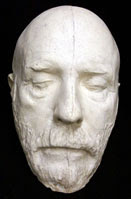A reader was good enough to send me a link to this essay, which concludes:
Nonetheless, Halleck's references, Schurz's knowledge, Jomini's comments on Clausewitz (especially as reported in the 1854 translation), the 1843 translation of Clausewitz's study of the Russian campaign, Wellington's "famous" response to Clausewitz's Campaign of 1815, the French translations and commentary, Mitchell's work in England, and the appearance of the 1835 article on Clausewitz in Britain and in the Military and Naval Magazine of the United States make untenable the assumption that Clausewitz's name and important aspects of his theories were inaccessible to American political and military figures in the Civil War era. Thus a Clausewitzian influence on Lincoln or on others in his circle remains a real possibility. In the absence of conclusive evidence one way or the other, the question must remain open.
Good points.
My problem with the Clausewitz-in-America crowd is that they (a) do not understand Clausewitz deeply on his own terms and (b) do not understand the Civil War in its fundamental political aspects.
They operate in an abnormal milieu without recognizing it as such; it is the Centennial milieu in which military history completely dominates and is separated from political history. Lincoln is the apolitical, pragmatic leader, not a party-builder. The few bones of political consideration sprinklled in to your average ACW history, the few times that Centennialists allow that Lincoln may have made a political calculation are met by this species of Clausewitzian with delight - you see Lincoln understands that war is policy (or politics) carried on by other means! Breakthrough! Why else would he inject political considerations into military affairs, knowing how we readers feel about such stuff?
Clausewitz, in our day, has been boiled down to one formula a five-year-old can grasp = politics by other means. ACW history, meanwhile, has been had the political stuff boiled out of it such that the sight of superpolitician Abe Lincoln injecting politics (horrors) into a war decision is so disconcerting we need Clausewitz to explain it.
For if Clausewitz is a military thinker, then Lincoln's political intervention is informed by the highest military science available in that day; then he has made a military decision after all (and our ACW history remains uninfected by politics).
Bad Clausewitz meets bad Civil War for a perfect Union.



